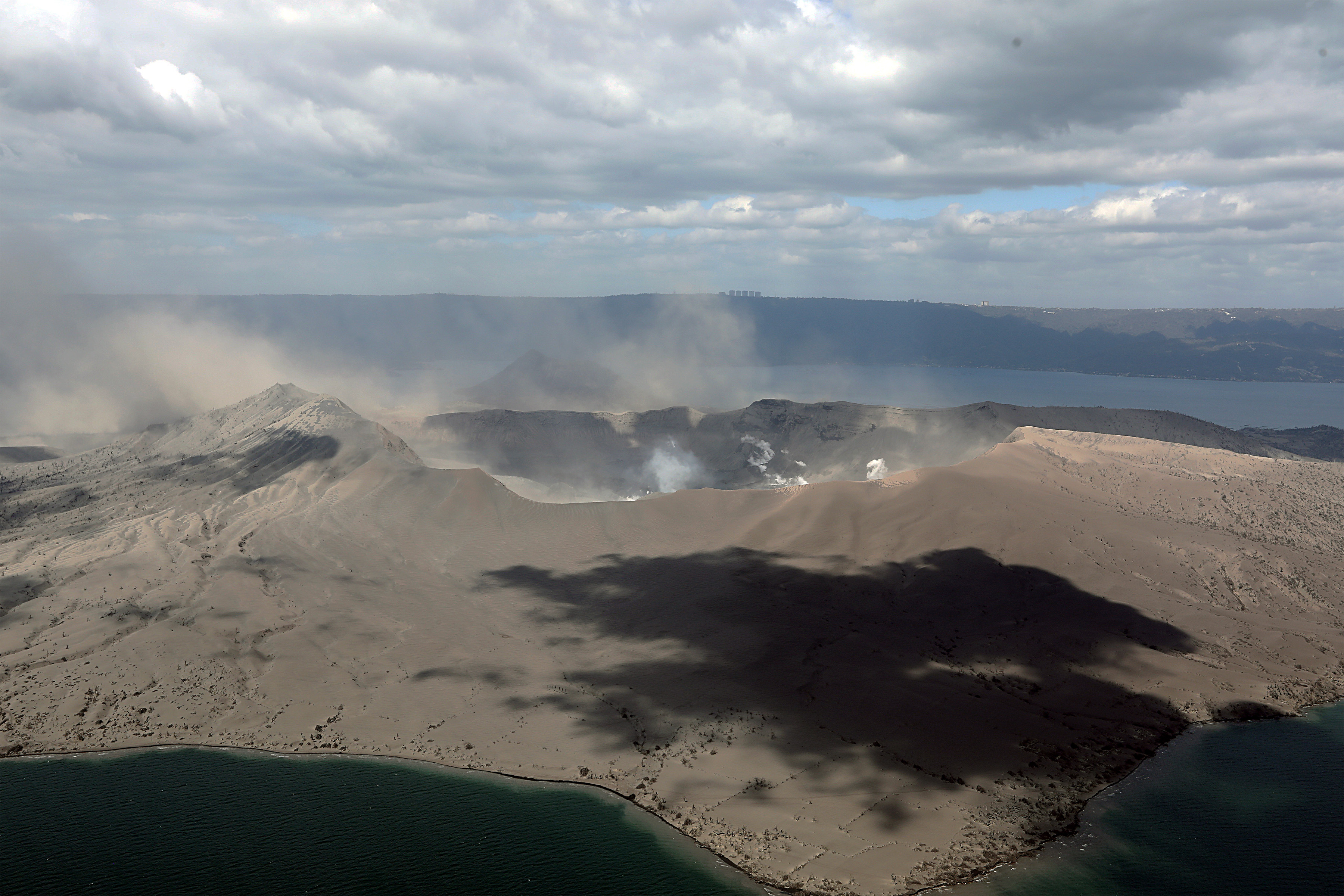
MANILA — Taal Volcano’s status has been lowered to Alert Level 1 (abnormal), more than four weeks after being placed under Alert Level 2 (decreased unrest) on February 14, the Philippine Institute of Volcanology and Seismology (Phivolcs) announced Thursday.
The daily volcanic quake average from February 14 to March 19 is 31.
Volcanic earthquakes are caused by movements or eruptions of magma from the volcano, unlike tectonic quakes which are caused by fault movements.
Sulfur dioxide emission had an average of 56 tonnes per day between February 14 and February 17.
“Below detection” sulfur emission was recorded in the succeeding days, according to Phivolcs.
The decreasing trend in Taal Volcano’s activity led Phivolcs to lower the volcano’s status.
Phivolcs director Renato Solidum Jr. earlier said that the standard operating procedure is that two weeks of the continuous downtrend in monitored parameters should be observed before they could lower its status.
There is still a threat for an eruption under the Alert Level 1 status, Phivolcs noted.
Sudden steam-driven explosions, volcanic earthquakes, minor ashfall and lethal accumulations of volcanic gas can occur and threaten areas within Taal Volcano Island (TVI), it added.
Entry into TVI, Taal’s Permanent Danger Zone, especially the vicinities of the main crater and the Daang Kastila fissure remains strictly prohibited.
People are also advised to observe precautions due to ground displacement across fissures, possible ashfall, and minor earthquakes.
A fissure is a linear volcanic vent through which lava erupts. The magma intrusion from below causes the fissures to form.